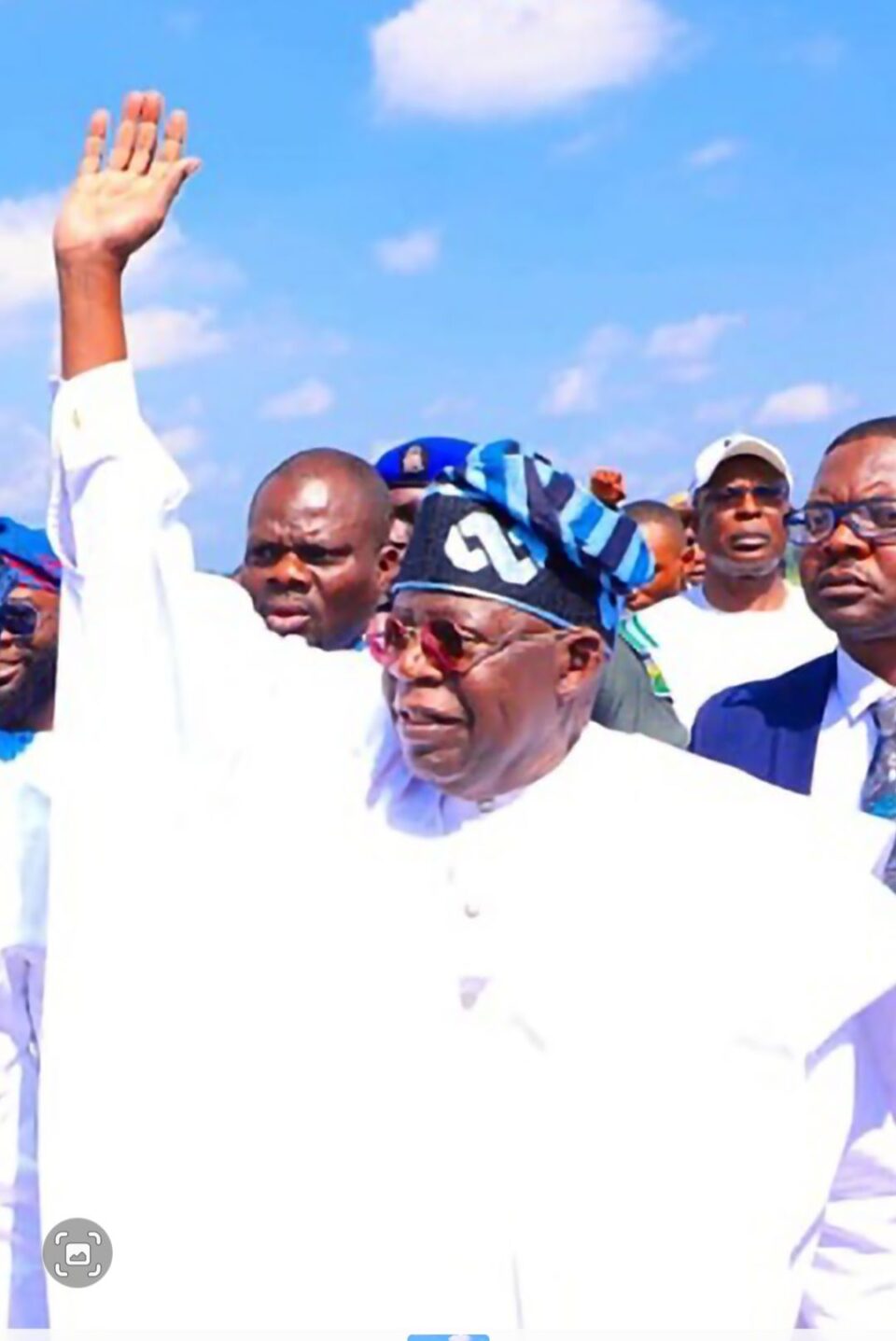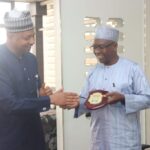By Professor Ojo Emmanuel Ademola
Throughout the long term and in no time before Nigeria’s independence and after autonomy, oil has been a significant kind of revenue and unfamiliar trade for Nigeria as a result of its reliance on a solitary item for quite a long time. Under President Tinubu, it is time to truly diversify every aspect that can make Nigeria great through effective economic motley.
In pre-colonial Nigeria, the agricultural sector, which was the backbone of the thrift, was pushed to the side, and corruption in the system made it impossible to use oil revenues to propel the economy to the necessary level of growth. At this time could the effective diversification agenda underlined within the Renewed Hope Agenda enable further solutions to escalate Nigeria’s economy?
Since Nigeria has been engaged in oil exploration for more than six decades, a significant number of its citizens continue to live in abject poverty, making this scenario extremely unfavourable to the country’s development strategy. Today, unemployment is double digits, oscillating between 30% and 33%, and productivity is at its lowest point. In light of this scenario, there is an urgent need to investigate potential strategies for shifting the Nigerian economy’s productive base away from oil. President Tinubu has started exemplarily unusual by indeed effecting speedy impetuses for escalating economic growth through the central variables of development.
Based on Nigeria’s unique circumstances and prior successes, analysts believe that diversification was necessary for Nigeria to overcome the challenges of a monolithic economy—especially one dominated by oil, susceptible to depletion, international price shocks, and adverse quota arrangements—and achieve profitability. The economic notion that leans on productivity is gaining traction within weeks of Tinubu’s presidency.
The Nigerian economy could be diversified in three ways essentially: through agriculture, tourism, and technological advancements and innovations. Taking into account the implications of a recent study on the advancement of hybrid species; both animals and plants, the provision of complementary inputs, and direct government involvement in the agriculture industry; In addition to funding technological development, increasing funds voted for tourism, easing the stringent requirements for obtaining a tourism visa, making use of cutting-edge facilities at all tourism destinations, and expanding funding for tourism will all contribute significantly to increasing the country’s revenue base and per capita income.
Nigeria’s GDP is expected to reach 454.05 USD Billion by the end of 2023, according to Trading Economics global macro models and analysts expectations, making it to remain solidly as the largest economy in Africa. It is also one of the fastest-growing economies in the world, with an average growth rate of 7.7% over the long term. Nigeria, which is the seventh most populous nation in the world and is home to approximately 200 million people, is Africa’s largest market. It has a young population that is innovative and vibrant, and if properly developed, it would blossom into the largest hub for trade globally. The global north nations are strategically relying on the vibrancy of the global south nations particularly Nigeria to rebalance their economies.
Since a decade now, oil prices have fluctuated, definitely since the middle of 2014 as a result of excess supply, low demand, or crises in major oil-producing nations, such as the current war between Russia and Ukraine, which is causing the country’s revenues to fluctuate. One could argue mightily that since the Russia’s invasion of Ukraine, Nigeria should have elevated the management of oil revenue by eliminating waste, theft, and other corruption-handedness in the sector to robustly escalate economic yield particularly by easing the economic challenges the country faces.
Due to Nigeria’s inherent potential in sectors other than oil, diversification of the economy’s dependence on crude oil must be addressed immediately to boost the economy. For example, innovation and digitized areas hold incredible potential for the development of the economy. Therefore, it is not surprising that the Nigerian Buhari administration established the Ministry of Communication and Digital Economy to capitalize on the sector’s potential earnings. Information and communication technology (ICT), telecommunication, and digital economy have contributed 18.44 per cent in Q2 2022 to the gross domestic product (GDP), making it the fastest revenue generator in the Nigerian economy. Such a growth superlative will gain exponentially and even more under President Tinubu for obvious reasons.
In a similar vein, agriculture is a crucial sector that will not only boost the economy but also provide food security and employment for the nation’s numerous youth without jobs. If appropriately evolved, the Horticultural area won’t just give occupations yet will give Nigeria the required unfamiliar trade and feed the Country. Nigeria’s continued digitization of agriculture will be a game-changing trend. It’s easy to see why agriculture needs digital solutions, especially in Nigeria, where farming is mostly done by smallholders or subsistence farmers and has a lot of inefficiencies that make it difficult to do well, leading to a fragmented and often poor agriculture economy. Some experienced and newer stakeholders are looking for digital solutions for the sector as a result of the need to bring more efficiency and transparency into the industry. Through effective digitalising of the Agriculture sectors particularly, with the new invention of the Internet of Things and that of probably Internet of Everything, we can say bye-bye to the herders and farmers crisis prevalent in some North Central States of the Country.
Agriculture incomes, employment, and domestic food security could all be improved through forward and backward integration into the input supply sectors, as well as forward links to agro-processing and other services like logistics. By 2030, Nigeria’s agricultural exports could generate over 60 billion dollars in export revenue at a rate comparable to Brazil’s. Diversification within the oil and gas industry must be implemented immediately to increase the value added to the output. Developing petrochemicals, fertilizers, methanol, and refinery, necessitates investments from the entire downstream sector.
Essentially, the fact that growth in Nigeria has been relative and must be balanced, driven by non-traditional sectors like manufacturing and services, is even more encouraging. Agriculture, services, and, to some extent, manufacturing contributed significantly to the buoyant economic performance over the past decade and a half, in addition to the extractive industry and quarrying.
Due to a lack of deliberate policies aimed at attracting tourists and security concerns in some of the tourist sites, the Tourism Sub-Sector is one grossly underutilized area. All that is required is to capitalize on Nigeria’s tourism potential as an additional source of foreign exchange earnings.
Essentially, as projected that Nigerians will begin to experience unprecedented economic development by the mid of 2024, it is within the Renewed Hope Agenda that the Tinubu government intends to assist Nigeria’s global tourism sector in recovering as quickly as possible, surpassing self-sufficient forecasts. This means that visitors from all over the world, both domestic and international, will eventually spend more, stay for longer, visit the country more frequently than just during the peak tourist season, and have access to a wider variety of destinations. The government has made it a priority to assist the sector so that it can overcome security issues and become more innovative, sustainable, inclusive, and resilient. Even though Lagos is important to the success of Nigeria’s tourism industry as a whole, we want tourism to grow quickly in all six geopolitical zones, both in urban and rural areas escalating the Renewed Hope’s Diversification trend.
With the Subsidy removal, an effective credit-based economy will keep moving on the ever-upping of the economy to superlatively escalate the diversification operation to an ever-winning strategy for effective service and dividends of democracy delivery to Nigerians.
Also, the deregulation of the Energy provisions, for instance, in the New Electricity Act Signed most recently by President Tinubu into Law, Nigerians will not have one single market regulated from Abuja but could have several Independent Regulators, which could domicile in the six geopolitical zones. A great progressive approach to improve our Electricity Supply. Now Power Generation, Transmission and Distribution have been deregulated, diversification is robustly making Tinubu’s Midas Touch an intensity of the making of Nigeria into a great Nation.
Overall, it is most important, for the economic and regulatory environment to keep moving forward and business-friendly essentials become central to the diversification synergy of the Government by making complicated regulations and procedures simpler and getting rid of obstacles that prevent Nigeria’s private sector from expanding and becoming more productive. Renewed Hope is here.
Ojo Emmanuel Ademola is a Professor of Cyber Security and Information Technology Management & Chairman of the Advisory Board of the APC Grassroots Governance Group G3



